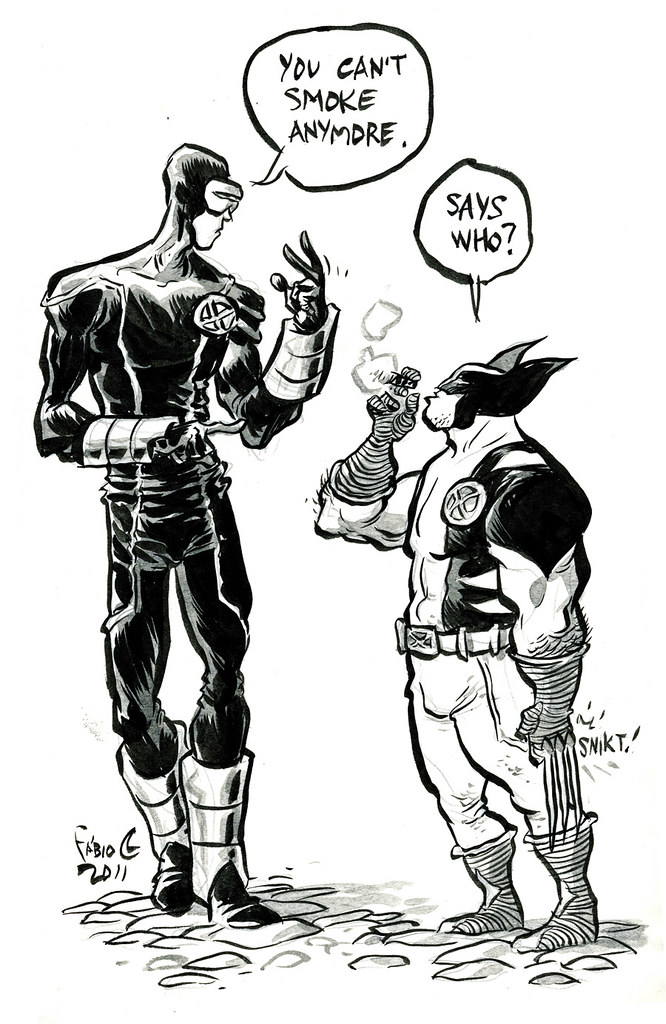In Stars, Dyer suggests that star bodies represent trends in American culture. For example, he suggests that the emergence of hard-bodied, muscular 80s action heroes runs parallel to the rise of an aggressive fitness culture during the Reagan Era. While some audiences actually do admire the strength of these massive men, others see the incredibility of their power as a source of disdain or laughter.
I, for one, am in the laughter camp. One of my all time favorite films is Arnold Schwarzenegger’s Predator (1987). By this point in his career, Arnold had become so massive (both in size and in popularity) that I couldn’t imagine anything on Earth being a threat to the man. Thus, it was inevitable that cinema would pit him against something crazy like an alien warrior.
Plus, who doesn’t love that awesome Carl Weathers/Schwarzenegger handshake?
As exemplified by the resulting nuclear explosion in the above video, the steroid-fueled masculinity of these action stars is seen as exaggerated by today’s standards -- pretty much Internet meme-level comedy. Today’s action men are much less bulky and more subdued thanks to the rise of the sensitive man character and shifting gender lines in modern society. Jason Statham, Daniel Craig, and Hugh Jackman, for example, are built more like lean MMA fighters than Conan the Barbarian.
Hugh Jackman and his portrayal of Wolverine in particular serves as a great example of how star bodies can represent idiosyncrasies in our culture. As a comic book fan, Jackman’s casting always irked me. Although Jackman nails Wolverine’s badass attitude and persona, he is much too tall to play Marvel’s deadliest X-Man. Hugh Jackman is 6’2” while Wolverine (as officially depicted in the comics) is 5’3”. That’s right, movie Wolvie is almost a foot taller than the genuine article.
As shown by the above height comparison chart, Wolverine is the shortest hero in the Marvel Universe next to Rocket Raccoon and Howard the Duck. I’m not just pointing this out to be a stickler for nerdy comic book facts here. I truly believe that changing Wolverine’s height completely changes the character. Because of his diminutive size in the comic books, Wolverine is often depicted as having a napoleon complex. He trains harder than any hero to be “the best at what he does” (a.k.a. killing people) so that he can stand toe-to-toe with giants like Juggernaut and Hulk despite the height disadvantage.
In fact, Wolverine was originally introduced as an antagonist for the Incredible Hulk in 1974. Their rivalry is still played up heavily in the comics to this day, and the contrast in their size serves to embody a David vs. Goliath theme. Thus, if Wolverine is the David of Marvel Comics, then he represents the strength of the little guy. He overcomes the assumption that a small man is a weak man and beats up the Incredible Hulk. Wolverine is known as one of the deadliest heroes in the Marvel Universe purely because of his skill in combat and not his emasculated appearance.
The depiction of Storm and Wolverine’s relationship in the comics also presents an interesting twist on heroic masculinity. Storm towers over Wolverine at 5’11” and many artist renditions depict Wolverine having to stand on his toes to kiss her. Ideal heterosexual couples in media always depict the man as being significantly taller than the woman. In this instance, not only is the couple interracial, but their height differential is completely flipped, allowing a progressive image in which Storm appears dominant in the relationship. The pairing of Storm and Wolverine thus invites readers to re-examine masculinity in relation to femininity.
The fact that Fox felt the need to cast a typically tall male actor for Wolverine in the movies comes as no surprise. As discussed in class, American masculinity is largely defined by how much space a man takes up -- in personality, loudness, action, appearance, etc. Being tall, especially in cinematic terms, allows an actor to take up as much of the film frame as possible and thus appear masculine without saying or doing much. A tall man has immediate impact while a short man has to prove himself, and the high risk of the movie industry does not allow time to wait for audiences to accept something different. Despite the change, Jackman’s portrayal has proven to be extremely lucrative for the X-Men movie franchise. The movie Wolverine has inspired numerous spin-off films and remains one of the most appealing superheroes for women audiences.
In the above clip from X-Men Origins: Wolverine, one can see how Hugh Jackman’s naked body is put on display for women audiences to look at in a similar fashion to Rudolph Valentino.
While I enjoy the X-Men franchise finding wider success, the true Wolverine for me will always be found in the comics. What does the class think? Do you think that there will ever be room on the screen for a short Wolverine?
- Michael Francisco



I often forget just how differently the characters of Marvel and DC are portrayed when translated to the screen, so this reminder about Wolverine's height was a great reminder. It's worth noting also that Wolverine's namesake is a rather small creature, about the size of a medium dog, and yet that definitely isn't the image that's evoked when looking at Hugh Jackman in the films. Wolverines are known for their ferocity and strength out of proportion to their size, with the ability to kill prey many times larger than themselves (courtesy of Wikipedia). I've usually found Marvel and DC's superheroes to be very aptly named, so it seems that the on-screen portrayals may not be doing Wolverine justice in the way the character was designed, since they focus more on Wolverine's appearance and physicality than his drive and skill. Still, I can't say I'm surprised. Who knows, maybe they'll have a short Wolverine when they finally acknowledge the non-heterosexuality of characters like Mystique and Batwoman on-screen.
ReplyDelete